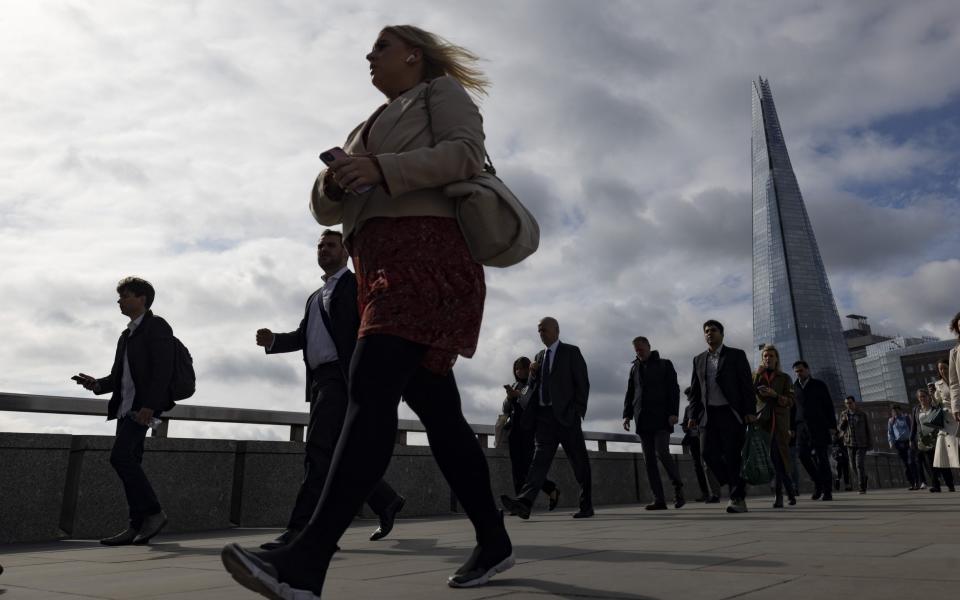London lags behind rest of world on return to the office

Lockdown home-working habits are persisting more in London than any other major capital as City professionals and civil servants stay away from the office, new data shows.
Google data has revealed footfall in London's office hubs was down by an average 31.8pc on pre-pandemic levels last week, putting it behind Paris, Berlin, New York and Tokyo for attendance in workplaces.
Footfall around offices in New York and Paris was down by 26.6pc and 24.25pc respectively between 9 May and 12 May. In Berlin and Tokyo, footfall had fallen by 17.5pc and 16.6pc respectively.
Google has been measuring so-called mobility data using its tracking technology to create reports of visitor activity in locations throughout major cities.
Its data shows that activity in the City of London was as much as 33pc lower than before Covid last week, with a 35pc fall in the City of Westminster.
The figures come after Boris Johnson criticised the nation's growing preference for working from home in an interview with the Daily Mail.
He told the newspaper the nation needed to "get back into the habit of getting into the office".
Mr Johnson added: "I believe people are more productive, more energetic, more full of ideas, when they are surrounded by other people.
"My experience of working from home is you spend an awful lot of time making another cup of coffee, and then you know, getting up, walking very slowly to the fridge, hacking off a small piece of cheese, then walking very slowly back to your laptop and then forgetting what it was you're doing."
Professor Len Shackleton, labour market expert at the Institute for Economic Affairs, said: "This is clearly a London-specific issue.
"We don't want to boss around private companies and say they don't know their own business. But the civil service jobs, especially the ones done in Westminster, can't really be done so well at home.
"The claims being made that there are big productivity gains for working from home are not backed up by particularly strong evidence.
"My fear would be that in the long-term if we get into a position where we are having a low level of office working that can be reversed in the City. But in the public sector if you give the unions something, it becomes very very difficult to reverse that."
Paul Swinney, Director of Policy at Centre for Cities, said: "My guess is the differences between these cities is to do with people's lifestyles.
"There's a greater desire to live out-of-town from people who are highly paid and work in London. People who live outside of London are unsurprisingly doing fewer days than people who work within London.
"Tokyo is much more dense and there are fewer people who commute in."

 Yahoo Finance
Yahoo Finance 